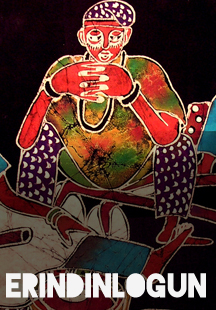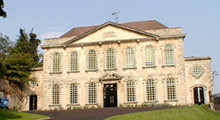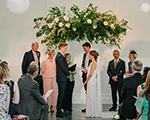Current Events
PLEASE NOTE: This event has passed. Click here to visit the current listings.
Afro-Cuban Sensibility
Friday 11th October - Sunday 13th October
Exhibtiion : 10am - 4pm Friday - Sunday. Private View: 6pm - 9pm Thursday 10th October
Afro Cuban Sensibility is a weekend of events taking place at the Merlin Theatre and Rook Lane, which celebrates the root of Afro Cuban culture and beliefs.
Presented by Curator Lekan Babalola and involving “Erindilogun” an Exhibition of Batik Textiles, live music by The London Lucumi Choir, discussion forums on the role of women in society, the veneration of dieties such as Osun, Goddess of the River and Yemoja, Goddess of the Sea – and how they inform women throughout the world – these events are an opportunity to reflect on the Universal themes central to Cuban culture.#
Curator Lekan Babalola discusses the history behind the project….
The first African slaves arrived in Cuba in 1510 or 1511 with Diego Valezquez. Africans were at first considered supplements to the slave labour of captured “Indians” native to the island. But Spanish diseases and massacres quickly decimated the Indian population, and the Cuban colony soon had to rely entirely upon captured individuals imported from Africa.
The slaves that came to Cuba represented a myriad of cultural identities, yet nearly all belonged to one of three basic language groups: Niger-Congo (of West Africa), Songhzi (the south and north western Sudan) and Hamito-Semitic (North-West Africa and the central and western Sudan). This larger relation between small cultural units was to be the basis for forging a new cultural identity of shared origin and struggle in Cuba. Though separate, people interacted and shared certain cultural traits (religion, family structure) and maintained cooperation throughout the cluster. In other words, these language families are made up of independent groups who, having shared geographic space, have developed close diplomatic relations with the other groups. Minor differences between cultural units could be overlooked, since they seemed quite familiar in comparison to the Europeans and other populations, and especially since the need for communication must have been so great.This is not to say it was an easy process: historical documentation shows that there was great contestation over status and cultural identity within African slave groups. But perhaps immediately or perhaps over several generations, Afro-Cubans began to realign themselves into the emerging patterns of distinct Afro-Cuban cultures. As Anthony Smith proposes in the Ethnic Origins of Nations, a perceived common history and sense of place (sub-Saharan Africa) helped to unite the ethnic, even though or especially because Africa has become a vision, a dream in opposition to the current reality. “An ethnic need not be in physical possession of ‘its’ territory; what matters is that it has a symbolic geographical centre, a sacred habitat, a ‘homeland’, to which it may symbolically return…ethnicity is a matter of myths, memories, values and symbols…”
Admission
FREE
More Information
To find out more, please visit our recommendations online:





